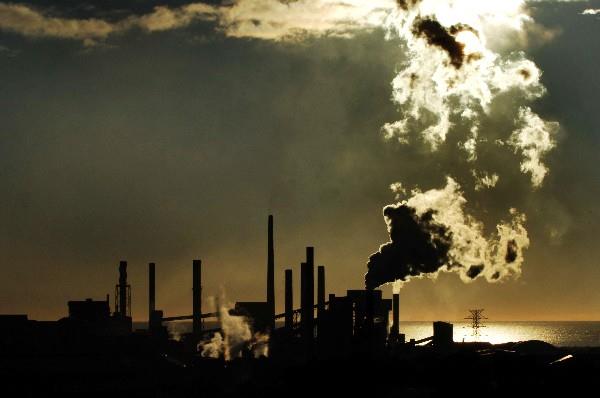
A Marxist approach appropriate for the climate crisis and the 21st Century
But how do humans survive the climate crisis?
The climate crisis should be treated as an emergency, demanding transformative politics that gets to the root causes through democratic systemic reforms. These would include remaking how people produce, consume, finance and organise social life.
A civilisation constantly undermining the conditions that sustain life has to be transformed urgently.
Despite the science and global consensus on the climate crisis, humans have continued emitting and intensively using fossil fuels. As a result the world is recording the hottest years on the planet. A heated planet, as a result of human action, unhinges all certainties and places everything in jeopardy. It challenges fixation with growth economics, 'catch up' development and every conception of modern progress.
Most fundamentally, it prompts the question, has globalised capitalism lost its progressiveness? Is today's fossil fuel driven, hi-tech, scientific, financialised and post-Fordist industrial world leading humanity down a path of destruction?
A new book I've edited , The Climate Crisis- South African and Global Democratic Eco-Socialist Alternatives, draws from the analysis, concepts and systemic alternatives emerging at the frontiers of climate justice politics. This includes alternatives championed by global social movements such as La Via Campesina , the largest peasant movement in the world, progressive Southern intellectuals and movements within Bolivia, Ecuador and Africa.
Challenging Marxism to meet the challengeAs in previous volumes in the Democratic Marxism series , this one brings together contributions that are thinking with – and learning from – grassroots movements. Many of the contributors are engaged activist scholars, grassroots activists and movement leaders.
This volume also places Marxism in dialogue with contemporary anti-capitalism in a way that draws on its ideological and movement potentials. Marxism in the 20th century as a ruling ideology, mostly as Marxism-Leninism, has pursued policies that have been ruinous to the environment. These have included championing growth at all costs, monopoly one party state control and catch-up industrialisation with capitalist countries.
In this volume nature is placed at the centre of how Marxism understands capitalism, history and alternatives. It confronts the intersections of climate change, patriarchy and racism inherent to capitalism. Marxism is challenged to think and act democratically in the 21st century. It's tested as an intellectual resource to serve as the basis for a new future.
This is different from socialisms in the 20th century. These where authoritarian (controlled by elites), anti-nature and undermined the power of workers, peasants and progressive social forces. This volume affirms the renewal of socialism in the 21st century in dialogue with Marxism, ecological thought and democratic alternatives emerging from below.
A heating planetIn 1988, NASA scientist James Hansen drew attention to the heating of the earth's temperature, otherwise known as climate change. Yet over the past two decades the US refused to adopt the Kyoto Protocol . This didn't go far enough but nevertheless locked in common but differentiated responsibilities for industrial countries to cut emissions. Instead, Washington has worked systematically to scuttle the Kyoto Protocol.
In 2006, Hansen cautioned that the world has a decade to change the trajectory of greenhouse gas emissions or face irreversible changes which would bring disastrous consequences.
Since this plea was made, another decade has been lost including through the ineffectual 'Paris Climate Agreement' championed by the US President Barack Obama but undermined by incumbent Donald Trump. Today geologists and climate scientists are talking about a dangerous new world: the Anthropocene . It's a world in which humans have changed planetary conditions including climate, breaking a 11 700 year pattern of relatively stable climate known as the Holocene .
The realities of climate driven worldFor many the climate crisis is a complex scientific problem. At one level it is. And is very different from daily or seasonal variability in weather. The science of climate change has confirmed , with the measurement of greenhouse gases that human induced climate change is happening.
In 2015, the halfway mark towards catastrophic climate change was broken. This was confirmed by the World Meteorological Organisation which broadcast to the world that planetary temperatures have reached a 1 degree Celsius increase higher than the period prior to the industrial revolution.
The world is moving rapidly closer to a 2°C increase in planetary temperature. With this shift, extreme weather events such as droughts, heatwaves, drier conditions enabling fires and floods are becoming more commonplace. Sea levels are also rising, placing many low-lying communities, populous coastal cities and island states in jeopardy.
Climate change on this scale is not expected to unfold in a linear way. Instead, it potentially can happen abruptly or through feedback loops further accelerating runaway climate change. Examples of this include methane release from the Arctic ice sheet, carbon saturation in the oceans and the destruction of rain forests which all feed into the climate change crisis. As the world fails to address the climate crisis, it becomes more complex and more costly.
In response, the Climate Crisis highlights the importance of advancing a deep and just transition that decarbonises society and provides a new basis for organising society to endure climate shocks.
New systems have to be developed through democratic systemic reforms. These would include the rights of nature, degrowth, climate jobs, socially owned renewable energy, a substantive basic income grant, integrated public transport, food sovereignty, solidarity economy and commons approaches to land, water and the cyber sphere.
- Barack Obama Development Marxism Global warming Anthropocene Kyoto Protocol Donald Trump James Hansen Marxism-Leninism Paris climate agreement Anti-capitalism globalism

Legal Disclaimer:
MENAFN provides the
information “as is” without warranty of any kind. We do not accept
any responsibility or liability for the accuracy, content, images,
videos, licenses, completeness, legality, or reliability of the information
contained in this article. If you have any complaints or copyright
issues related to this article, kindly contact the provider above.


















Comments
No comment